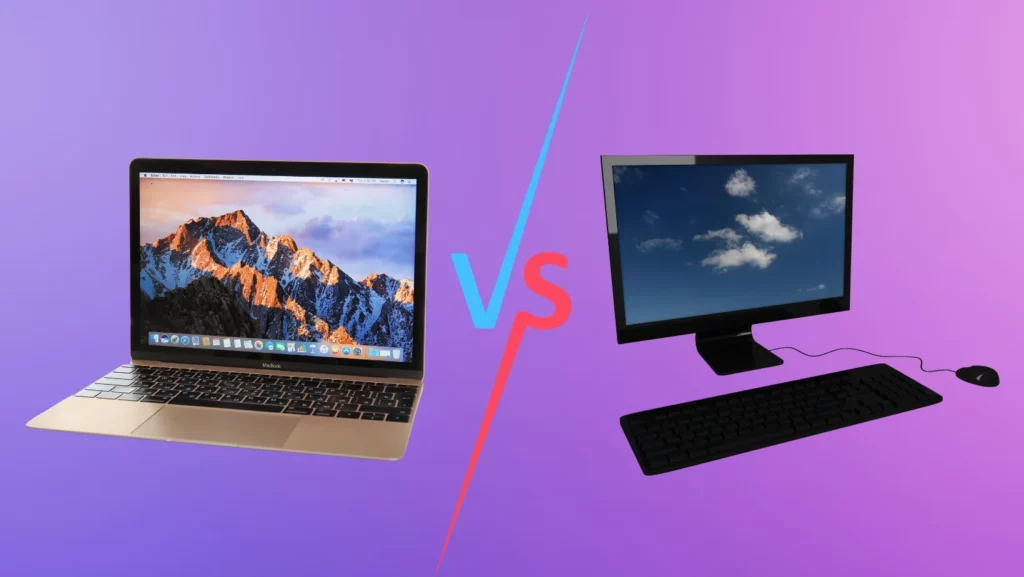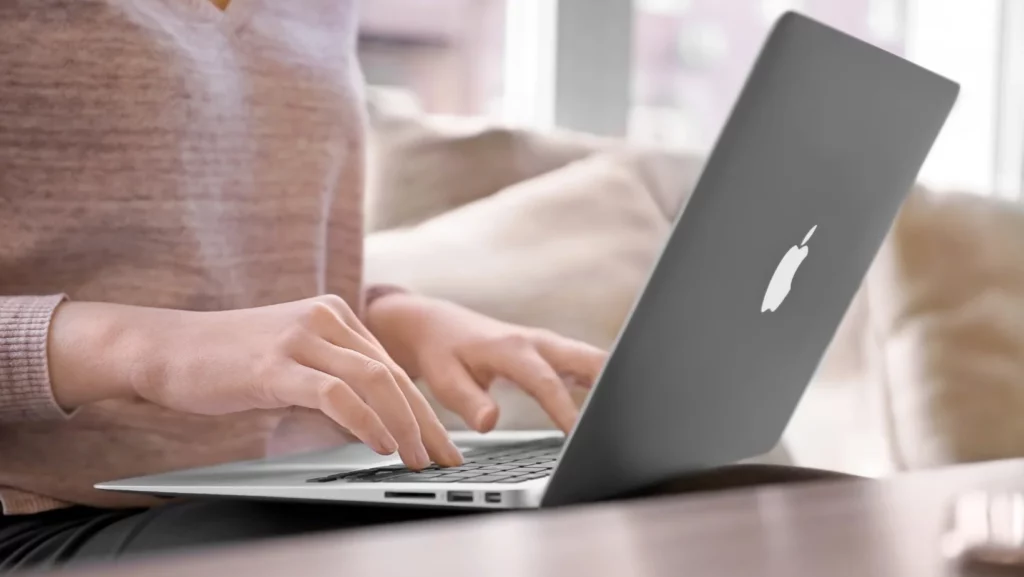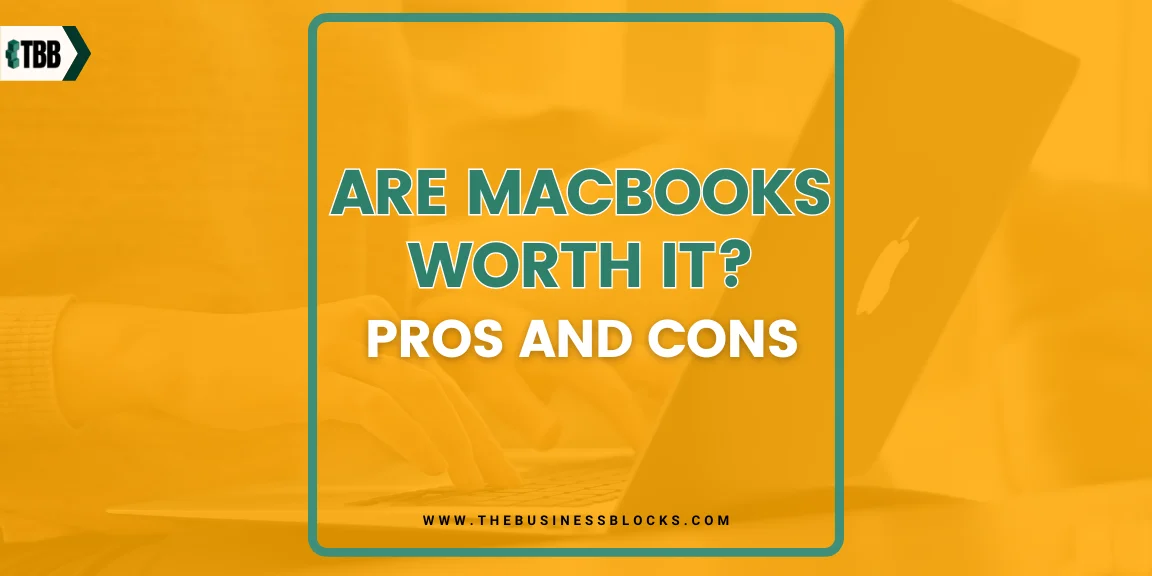In the ever-evolving landscape of technology, the perennial question lingers: Are MacBooks worth the investment? As sleek and sophisticated devices that have become synonymous with creativity and innovation, MacBooks boast a devoted fan base. Yet, the debate over their worthiness persists. In this exploration of the Pros and Cons of MacBooks, we delve into the intricacies that define these iconic devices, weighing the advantages that have enamored users against the potential drawbacks that may give pause to the prospective buyer.
Join us on this insightful journey as we unravel the complexities surrounding the question: Are MacBooks truly worth it?
Are MacBooks truly worth it?
Unlock the enigma as we dissect the Pros and Cons, revealing the hidden gems and potential stumbling blocks that await prospective users. From the allure of sleek aesthetics to the promise of unparalleled performance, each MacBook comes with its unique tale.
Yearning for a device that seamlessly integrates into your creative endeavors? Eager for the unmatched reliability of macOS? Dive into the Pros, where the allure of superior build quality, innovative features, and a robust operating system might just spark that coveted desire for a MacBook.
Make an informed decision – your perfect tech companion awaits, but the choice is yours so, Read on!
Introduction to Macbook

A MacBook is a line of laptop computers designed and manufactured by Apple Inc. The MacBook lineup includes different models, each catering to specific user needs and preferences.
The MacBook lineup is not merely a collection of laptops; it’s a manifestation of Apple’s commitment to pushing boundaries. From the iconic MacBook Air to the powerful MacBook Pro, each device is a testament to meticulous design, seamless integration, and a user-centric approach.
So, whether you’re a seasoned Apple enthusiast or a curious newcomer, join us in unraveling the essence of the MacBook—where form meets function, and innovation meets everyday usability. Welcome to the extraordinary world of MacBooks.
Did you know?
- In 2020, the United States had the highest MacBook Pro market share (21%) among countries worldwide.
- Over 100 million people use Macs worldwide.
- MacOS Catalina dominated the global macOS market in January 2023 with a market share of 87.44 percent.
Macbook Vs. PC

The comparison between a MacBook and a PC (personal computer) is a common debate that revolves around factors such as operating systems, hardware, design, software ecosystem, and user preferences. Here are some key points to consider when comparing MacBooks and PCs:
1. Operating System:
- MacBook: MacBooks run on macOS, Apple’s proprietary operating system. macOS is known for its sleek design, user-friendly interface, and seamless integration with other Apple devices.
- PC: PCs run on various operating systems, with Microsoft Windows being the most common. Windows is versatile and widely used, providing compatibility with a vast range of software and hardware.
2. Design and Build Quality:
- MacBook: Apple is renowned for its premium build quality and sleek design. MacBooks often feature aluminum unibody construction, Retina displays, and a minimalist aesthetic.
- PC: PC laptops come in a diverse range of designs and build qualities. Some manufacturers focus on premium materials and design, while others offer a variety of options to cater to different budgets and preferences.
3. Hardware Options:
- MacBook: Apple controls the hardware specifications of MacBooks. Users have limited options for customization but can choose from different MacBook models with varying performance levels.
- PC: PCs offer a wide range of hardware options from various manufacturers. Users can customize components such as processors, graphics cards, and storage to suit their specific needs and budget.
4. Software Compatibility:
- MacBook: MacBooks excel in creative fields and are known for software like Final Cut Pro, Logic Pro, and other macOS-specific applications. However, some software may have limited macOS support.
- PC: PCs have a vast software ecosystem, and most applications are developed with Windows compatibility in mind. Users can find software for almost any purpose on the Windows platform.
5. Gaming:
- MacBook: While recent MacBooks with Apple Silicon (M1) have improved graphics performance, Macs historically have not been known as gaming machines. The gaming library on macOS is more limited compared to Windows.
- PC: PCs, especially those with dedicated graphics cards, are popular choices for gaming due to the extensive library of games available for Windows.
6. Price:
- MacBook: MacBooks are generally considered premium devices and can be more expensive upfront compared to many PCs.
- PC: PCs come in a wide price range, from budget-friendly options to high-end gaming or professional workstations.
In the end, the choice between a MacBook and a PC often depends on individual preferences, specific use cases, and budget considerations. Both platforms have their strengths and cater to diverse user needs.
Pros of Choosing a MacBook: The Apple Advantage

Choosing a MacBook comes with a range of advantages, often referred to as “The Apple Advantage.”
Here are some key pros of opting for a MacBook:
Build Quality and Design:
- Premium Materials: MacBooks are known for their premium build quality, often crafted from high-grade aluminum, providing a durable and sleek design.
- Slim and Lightweight: The MacBook Air, in particular, is exceptionally thin and lightweight, making it a preferred choice for users who prioritize portability.
Retina Display:
- High-Resolution Screens: Many MacBook models come with Retina displays, offering high resolution and vibrant colors for an immersive viewing experience.
- True Tone Technology: Some models feature True Tone technology, adjusting the display’s color temperature based on ambient light, providing a more natural viewing experience.
macOS:
- User-Friendly Interface: macOS is known for its intuitive and user-friendly interface, making it easy for users to navigate and customize their computing experience.
- Seamless Integration: MacBooks seamlessly integrate with other Apple devices and services, such as iPhone, iPad, Apple Watch, and iCloud.
Performance and Efficiency:
- Apple Silicon: The transition to Apple Silicon (M1 chip) has brought significant improvements in performance and energy efficiency, resulting in faster and more power-efficient MacBooks.
- Silent Operation: MacBooks are designed to operate quietly, thanks to their efficient cooling systems.
Software Ecosystem:
- Optimized Software: Apple’s ecosystem is well-integrated, and software like Final Cut Pro, Logic Pro, and other creative applications is optimized for macOS.
- App Store: The Mac App Store offers a curated selection of applications, ensuring quality and security.
Security and Privacy:
- Built-in Security Features: MacBooks come with built-in security features, including FileVault encryption, Gatekeeper, and regular security updates.
- Privacy Focus: Apple emphasizes user privacy, with features like App Store privacy labels and on-device processing of personal data.
Customer Support:
- AppleCare: Apple provides customer support through AppleCare, offering extended warranty and technical support services for MacBook users.
- Retail Stores: Access to Apple Retail Stores allows users to receive in-person assistance and support.
Resale Value:
- Retains Value: MacBooks generally retain their resale value well compared to some other laptops, contributing to a potentially lower total cost of ownership.
While these advantages make MacBooks a preferred choice for many users, it’s essential to consider individual preferences, specific use cases, and budget constraints when making a decision.
Cons of Choosing a MacBook: Navigating the Drawbacks

Despite the many advantages, choosing a MacBook also involves navigating certain drawbacks.
Here are some cons to consider when deciding on a MacBook:
Price:
- High Initial Cost: MacBooks are known for their premium pricing, making them more expensive upfront compared to many Windows-based laptops with similar specifications.
Limited Customization:
- Limited Upgradability: MacBooks often have limited options for user upgrades, with components like RAM and your storage being soldered onto the motherboard. This reduces the ability to customize or upgrade the device over time.
Software Compatibility:
- Limited Software Library: While macOS has a robust selection of applications, certain specialized software or games may have limited compatibility compared to the extensive software library available for Windows.
Repairability:
- Limited Repair Options: MacBooks are designed with a focus on aesthetics and compactness, often leading to challenges in repairing or upgrading components. Repairs may need to be done by authorized service providers.
Gaming Ecosystem:
- Limited Gaming Ecosystem: While gaming on Mac has improved with Apple Silicon, the gaming ecosystem on macOS is not as extensive as on Windows, and some popular game titles may not be available.
Dependency on Apple Ecosystem:
- Locked into Apple Ecosystem: While the integration with other Apple devices is a pro, users heavily invested in the Apple ecosystem may find it challenging to switch to non-Apple products in the future.
File Compatibility:
- Compatibility Challenges: Users who regularly collaborate with individuals using Windows-based systems may face occasional compatibility challenges, especially when sharing files or using specific applications.
When considering a MacBook, it’s essential to weigh these drawbacks against the benefits, considering individual preferences, specific use cases, and budget constraints.
Performance and User Experience: 10 Aspects Where MacBooks Shine
One of the standout features of MacBooks is their exceptional performance and user experience. Let’s delve into why MacBooks shine in these aspects:
- Apple Silicon Advancements:
- M1 Chip Integration: The introduction of Apple Silicon, starting with the M1 chip, has revolutionized MacBook performance. The custom-designed silicon brings faster processing speeds, improved energy efficiency, and enhanced overall performance.
- Smooth and Efficient Multitasking:
- Optimized for macOS: MacBooks are optimized to run macOS seamlessly, resulting in a smooth and efficient user experience. The operating system is designed to work seamlessly with the hardware, contributing to responsive multitasking and quick app launches.
- Unified Memory Architecture:
- Unified Memory: The integration of unified memory architecture in Apple Silicon MacBooks allows for better resource management. This shared memory pool enhances both graphics performance and general system responsiveness.
- Quick Boot-Up and Wake Times:
- Fast Start-Up: MacBooks are known for their rapid start-up times. The combination of solid-state drives (SSD) and optimized software allows users to boot up their devices quickly and resume tasks almost instantly.
- Retina Display for Visual Excellence:
- High-Resolution Retina Display: Many MacBook models feature Retina displays, offering high pixel density and vibrant colors. This ensures a visually stunning experience, whether you’re editing photos, watching videos, or working on creative projects.
- Silent Operation:
- Efficient Cooling System: MacBooks are engineered with efficient cooling systems that allow for silent operation. This is particularly beneficial for users who require a quiet environment for focused work or entertainment.
- Gesture-Based Navigation:
- Intuitive Trackpad: The MacBook trackpad is renowned for its size and responsiveness. Additionally, macOS supports a variety of multitouch gestures, making navigation and interaction with the interface intuitive and user-friendly.
- Software Optimization:
- Optimized Applications: Applications developed by Apple, such as Final Cut Pro, Logic Pro, and Safari, are optimized to leverage the capabilities of Mac hardware. This results in enhanced performance and a more efficient workflow for creative professionals.
- Long Battery Life:
- Energy-Efficient Hardware: The integration of Apple Silicon has not only improved performance but also contributed to enhanced energy efficiency. This, combined with macOS optimizations, results in longer battery life for many MacBook models.
- Seamless Ecosystem Integration:
- Integration with Other Apple Devices: For users invested in the Apple ecosystem, MacBooks seamlessly integrate with other Apple devices. Features like Handoff, Continuity Camera, and iCloud synchronization contribute to a cohesive and interconnected digital experience.
The synergy between optimized hardware and software, coupled with advancements in Apple Silicon technology, positions MacBooks as devices that excel in both performance and user experience. Whether for creative endeavors, professional tasks, or everyday computing, MacBooks consistently deliver a premium and efficient user experience.
Practical Tips for Deciding if Macbook is worth it

The decision of whether a MacBook is worth it depends on your specific needs, preferences, and budget. Taking the time to carefully evaluate these factors will help you make an informed choice that aligns with your computing requirements.
Here are our practical tips for you:
Assess Your Budget:
Evaluate your budget constraints and determine whether a MacBook aligns with your financial considerations. While MacBooks offer a premium experience, it’s crucial to ensure that the investment is within your means.
Consider Your Use Case:
Define your primary use for a laptop. If your tasks involve creative work, video editing, or graphic design, where MacBooks excel, the investment might be more justified. For general computing needs, other options could be more cost-effective.
Explore Software Compatibility:
Examine the software applications you regularly use. Ensure that the software you depend on is compatible with macOS. If your workflow relies heavily on specific Windows-only software, you might need to factor in potential workarounds or consider a Windows-based alternative.
Evaluate Ecosystem Integration:
If you already use other Apple devices such as an iPhone or iPad, consider the benefits of seamless integration within the Apple ecosystem. Features like Handoff, AirDrop, and iCloud synchronization can enhance your overall digital experience.
Research Hardware Requirements:
Assess the hardware specifications you need for your tasks. While MacBooks offer high-quality hardware, it’s essential to ensure that the specifications align with your requirements. Consider factors like processor speed, RAM, and storage capacity.
Compare Alternatives:
Research and compare MacBook alternatives in the market. Windows-based laptops and other operating systems may offer similar features at different price points. Assess the specifications, build quality, and user reviews of competing laptops to make an informed decision.
Factor in Long-Term Value:
Consider the long-term value of your investment. MacBooks are known for retaining their resale value, which can contribute to a lower total cost of ownership over time. Evaluate the potential resale value if you plan to upgrade in the future.
Visit an Apple Store:
If possible, visit an Apple Store or an authorized retailer to experience the MacBook in person. Test the keyboard, trackpad, and overall build quality to ensure that the device aligns with your preferences and ergonomic needs.
Read User Reviews:
Research user reviews and testimonials to gain insights into real-world experiences with MacBooks. This can provide valuable information about common issues, user satisfaction, and the overall reliability of the devices.
Frequently Asked Questions About Are Macbooks Worth It? Pros and Cons
Accordion HeadingQ: Are MacBooks worth the higher price tag?
A: The value of a MacBook depends on individual preferences and needs. While MacBooks are known for their premium build, design, and performance, some users may find lower-priced alternatives that meet their requirements.
Q: What makes MacBooks stand out from other laptops?
A: MacBooks are often praised for their sleek design, high-resolution Retina displays, optimized integration with macOS, and access to a range of creative software. The build quality, performance, and Apple ecosystem integration contribute to their popularity.
Q: Can I use Windows on a MacBook?
A: Yes, you can run Windows on a MacBook using virtualization software like Parallels Desktop or by using Apple’s Boot Camp. This allows users to have both macOS and Windows on the same device.
Q: Are MacBooks good for gaming?
A: While recent MacBooks with Apple Silicon have improved graphics performance, they are not traditionally known as gaming machines. Windows-based PCs are generally preferred for a wider selection of games and gaming capabilities.
Q: Do MacBooks require antivirus software?
A: While macOS has built-in security features, including XProtect and Gatekeeper, some users choose to use third-party antivirus software for added protection. The need for antivirus software on a MacBook is a subject of ongoing debate.
Final Thoughts
The question of whether MacBooks are worth it ultimately hinges on your unique needs, preferences, and budget. The sleek design, seamless integration into the Apple ecosystem, and top-notch performance make MacBooks a compelling choice for many. However, the higher price tag, limited customization, and potential software compatibility considerations might give some users pause.
Before making your decision, weigh the pros and cons based on what matters most to you. If you prioritize a premium user experience, creative capabilities, and a well-integrated ecosystem, a MacBook could be a fantastic investment. On the other hand, if budget flexibility, extensive customization, or specific software requirements are paramount, exploring alternatives might be worthwhile. Remember, the best choice is the one that aligns with your unique needs and enhances your overall computing experience.

